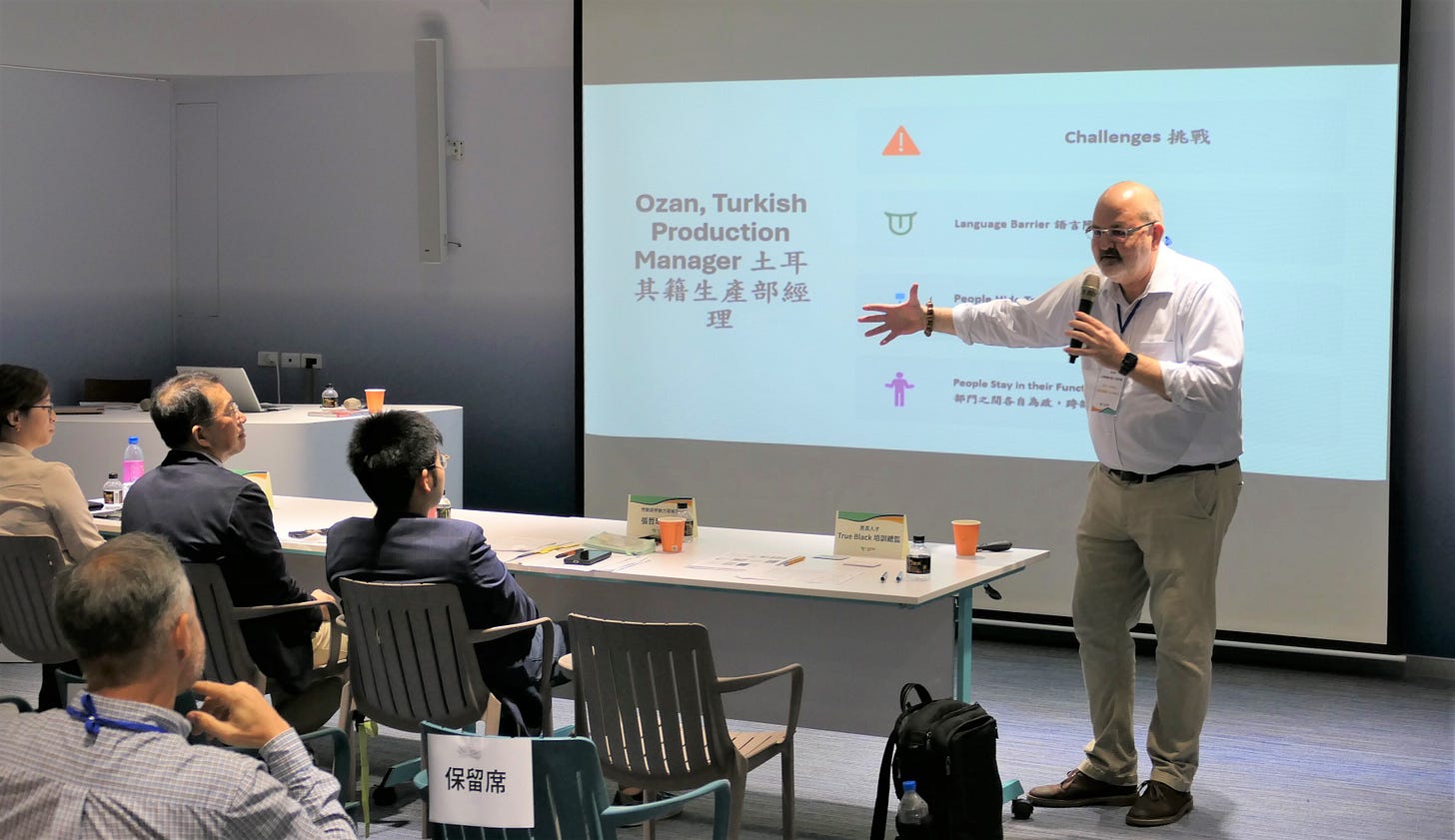Beyond Hiring: What It Takes to Help Foreign Talent Excel in Your Company
With over two decades of experience in coaching, guest writer True Black shares key strategies to help managers better integrate their international employees in Taiwan

With growing talent shortages across sectors in Taiwan, more companies are expanding their search beyond local candidates. Yet bringing global talent in is only the first step — what happens once they’re on the team?
In his article for Talent Taiwan, executive coach True Black outlines practical strategies to help culturally diverse teams thrive, drawing from his extensive experience working with foreign professionals, team leaders and HR representatives. For Black, diversity can be a powerful asset, but only when it is managed well.
Overcoming Language and Communication Barriers
Even when English is the working language, communication can break down. According to Black, it’s not about fluency — it’s about expectations.
“Taiwanese colleagues may not feel confident speaking up in English, while expats often speak too fast or use idioms like ‘low-hanging fruit’ or ‘circle back.’ The result? Confusion, longer meetings, and frustration.”
Black recommends a few simple strategies for meetings: slow down and choose words carefully, build in time to confirm understanding, use tools like whiteboards and transcripts, and don’t underestimate the power of asking clarifying questions — “Ask a few yourself to check for understanding.”
Updating Meeting Norms
Meeting effectiveness can already be a challenge for many teams, multicultural or otherwise. For Black, establishing inclusive practices for meetings can make for better team performance. He suggests:
Setting clear agendas and role clarity
Making space for everyone to speak
Being clear on action points and decisions
Reviewing how your meetings are going — regularly

Surfacing the Unspoken
Black urges leaders to clarify expectations around work hours, decision-making, team roles, and all the “real” job scope specifics that go beyond what’s written. He suggests spelling out things like how decisions are made, when and how to challenge decisions, expected work hours and even turnarounds for deadlines and responses.
“This should be a conversation that starts before the hire’s first day and continues over time, as expectations evolve with experience. Clear communication of expectations early on helps ease integration and prevent misunderstandings.”
Making Integration Intentional
While Taiwan is known for its hospitality, that warmth might not always translate into inclusion, especially when foreign hires struggle to navigate the culture at first, or face roadblocks at banks and phone companies. As Black says, “While Taiwanese people are generally friendly to foreigners, many of Taiwan’s systems are not.”
Since small help “goes a long way”, Black suggests:
Assigning a “culture guide” or “buddy” to explain norms and answer questions
Pairing new hires with local colleagues on projects early as a way to help them understand workflows and build relationships
Offering practical help for things like setting up a phone or bank account
Read More About Working in Taiwan:
What Taiwanese Employers Need to Know: How to Recruit and Retain International Talent
Taiwan’s workforce is evolving. Taipei-based headhunting expert Alan McIvor provides insight into what Taiwanese companies should (and shouldn't) do when it comes to hiring global talent.
Taiwan for LGBTQ+ Professionals: Work, Life, and Community
As part of Pride Month, we explore LGBTQ+ rights, visa pathways, workplace protections, and queer-friendly living in Taiwan for global talent thinking about making the move.
This article was edited by Talent Taiwan. Unauthorized reproduction is prohibited. The views expressed in the original article are the author’s own and do not represent Talent Taiwan. For more employer resources, visit the For Employers section on the Talent Taiwan website.





